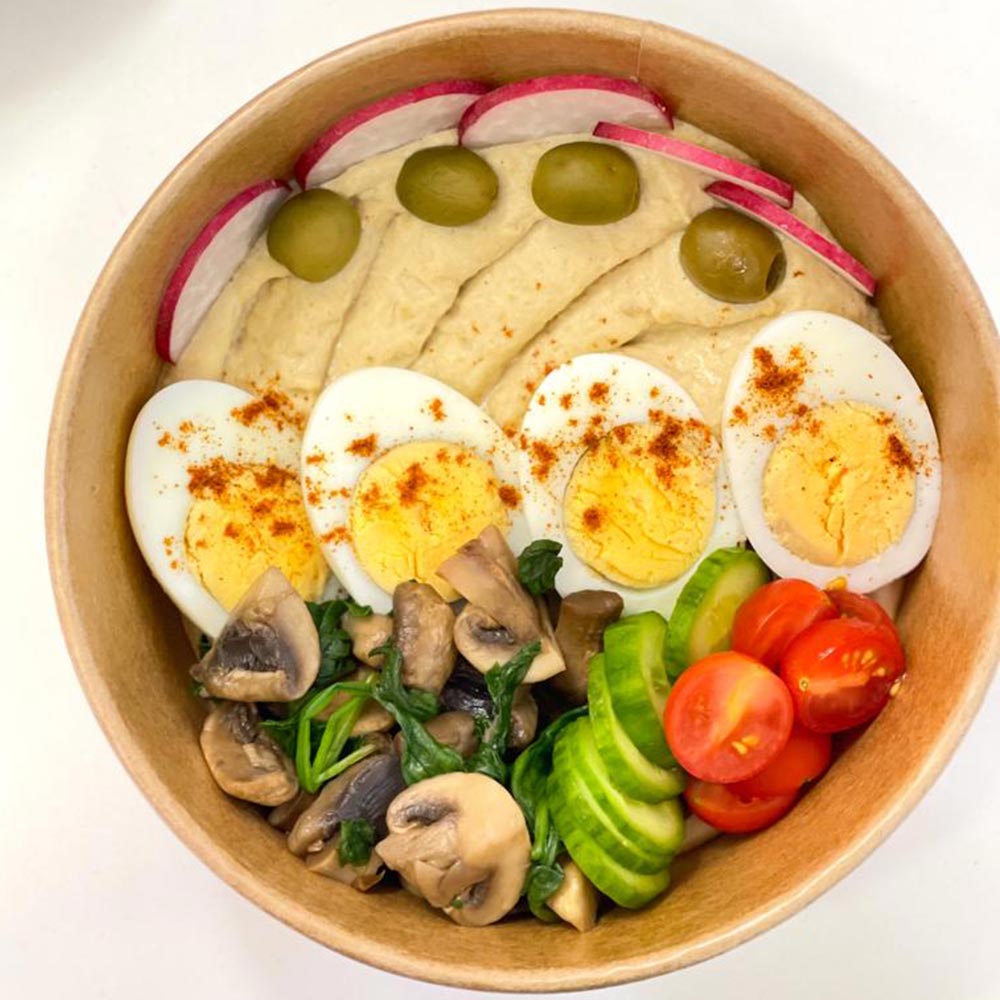Unfortunately, fats are typically misjudged or completely
ignored in the quest to improve one’s health. A lot of people especially
focusing on their diets ignore fats in the belief that they make one fatty or
slow. But this mindset overlooks one of the most powerful sources of
sustainable energy our bodies can tap into healthy fats. On the contrary, the
correct kinds of fats are crucial for the energy, stable weight, and correct
functioning of the organism. When you decide to consume saturated fats of the
proper sort, omega-3 fatty acids and other unsaturated fats, you are firstly
giving your body a fuel that burns brightly, slowly and evenly, helping the
brain and muscles to stick to their task.
Now, the question is how does it differentiate itself from
all these unhealthy fats and why does the human body need these heath fats to
sustain its energy level? In this guide, we explain the science and the
nutrition principles that support the effective use of healthy fats and why it
could be amazing for you to start including them as part of your plate.
Understanding Fats: The Good vs. the Bad
The reason why healthy fats are important for energy is best
explained if one considers the difference between good fats and bad ones.
Saturated and trans fats known as bad fats are found in baked products, fried
foods and some meats and dairy products. Some of these fats typically elevate
the LDL cholesterol levels in the body and cause heart disease hence leading to
a slow metabolism. Though they offer energy, most of them would cause serious
health consequences if taken in large proportions.
On the other hand, good fats that refer mostly to
unsaturated fats such as monounsaturated and polyunsaturated fats are in rich
many health benefits. They are rich in whole foods, which contain natural
nutrients in their raw or minimally processed forms such as avocado, nuts,
seeds, olives, and fatty fish. These fats have anti-inflammatory effects, play
a role in positive brain health, and are dense with omega-3 fatty acids. Bad
fats harm cholesterol levels as well as energy storage and use, while good fats
do not damage cholesterol levels, and are incorporated in a way that provides
long-term energy as opposed to short-term sugar rush.
The Energy Boost from Healthy Fats
Good fats provide a constant, long-term supply of energy
that is different from that of complex carbohydrates and perform a cell
function. As compared to other complex carbs that increase blood sugar and
cause copious amounts of energy surge, healthy fats offer a steady energy
release. If part of healthy fats, they do not get metabolized and glycogen-like carbs, but they are converted into fatty acid which meets the energy needs
of the cells in the long run. This slow-release method makes healthy fats
perfect for a consistent supply of energy and strength – perfect for long
training sessions or gruelling days.
To athletes and or any sportsman or sportswoman or
individuals who engage in any rigorous activities or exercises, healthy fats do
not hold any lesser value as compared to other nutrients since same contribute
to the endurance that is energy. Carbohydrates can be the only fuel as the only
energy source and this always results in a bonk which is a situation of sore
tiredness that is always realized during training. Carbohydrates should always
be accompanied by healthy fats because these maintain and balance energy and
performance, and prevent crashes.
Healthy Fats and Weight Loss: A Surprising Connection
Ironically for those aspiring to shed off the extra pounds,
including healthy fats has its benefits. These kinds of fats can help to
provide feelings of fullness and satisfaction and leave less likely to over-eat
or have a craving for chocolates. While refined carbs make you hungrier and
cause binging, good fats from foods such as avocados and nuts prevent
overeating and ensure that you eat in moderation.
Furthermore, healthy fats enhance the process called
thermogenesis in which the body burns calories to generate heat. This process
assists the body in utilizing energy to the most in the case of a healthy diet
and exercise regime to support weight loss.
Key Sources of Healthy Fats to Fuel Your Day
Healthy fat doesn’t mean excessively consuming olive oil or a daily meal of fish such as salmon. There is a great source of good fats and these can be enjoyed at any meal they are easily incorporated. Here’s a quick list of foods for energy that are rich in the kind of fats your body thrives on:
- Avocado: A rich source of healthy monounsaturated fat,
avocados can be eaten in salads, smoothies, and toast alongside those who
prefer to eat their first meal of the day. Rich in fiber contributes to
digestion and also helps to maintain adequate energy that is sustainably
produced.
- Nuts and Seeds: Omegas 3 and 6 are also rich in almonds,
walnuts, chia seeds, and flaxseeds. They have a perfect crispy texture, and unlike
granola, they can be useful for oatmeal, yogurt, or you can eat them by
yourself.
- Fatty Fish: It gets incorporated from products like salmon,
mackerel and sardines which are popular sources of omega-3 fatty acids. It is
also important to note that these fish have been known to have qualities that
alert your brain and further provide alertness.
- Olive Oil: Olive oil: A product of the Mediterranean, it is
rich in monounsaturated fat and should be used for dressing, cooking or baking.
Extra virgin olive oil also possesses antioxidant activity, which will in turn
enhance the electron transport chain within cells.
- Coconut Oil: While most oils contain long-chain fatty acids
that the body mobilizes and uses for energy, coconut oil has a concentration of
medium-chain triglyceride content. They can be consumed with a cup of coffee or
blended into smoothies; a teaspoon will suffice for a quick fix.

Omega-3 Fatty Acids: The Ultimate Powerhouse
Of all the recommended types of fats, omega-3 fatty acids
should be noted. Omega-3s are most well known for being found in fish, flax
seeds and walnuts, they are anti-inflammatory and essential for the brain and
heart. Omega 3 fats cannot be synthesised by the body and therefore one has to
take them through diet. These fatty acids provide improved focus and mental
well-being, as well as guard against tiredness — and are therefore part of a
nutritious diet.
Omega-3s have been associated with enhanced
endurance making it a crucial product for athletes and other lovers of
exercise. A well-balanced diet with omega-3 fatty acids improves the response
time, decreases inflammation after exercise and helps the muscles recover,
which in turn provides sustainable energy.
How to Incorporate Healthy Fats into Your Diet
If you're just beginning to include healthy fats in your
meals, here are a few nutrition tips:
- Start Your Day with Fat: Include avocado in the morning
smoother or give your breakfast bowl with nuts and seeds. It also enables the
breakdown of your metabolism and prevents you from experiencing a drop in
energy level halfway through the morning.
- Combine Fats with Fiber: This leads one to recommend that
whenever possible ensure healthy fats are eaten together with fiber such as green
vegetables, whole grain products or beans. This combination further slows
digestion, helps with a sustained release of energy and keeps the feeling of
satiated for longer.
- Snack Smart: Make sure you get a small bowl of nuts or yogurt with chia seeds and you can have this in between meals.
- Cook with the Right Oils: When cooking use olive oil for
stirring foods such as vegetables or coconut oil for baking recipes because
these oils do not break down at high temperatures losing their health-promoting
properties.
Conclusion
So, healthy fats are not only about energy they are about
balance and function in a modern civilized world. So when you select sources
like omega-3 fatty acids, nuts, seeds, and avocados, you’re fueling your body
in a way that allows you to keep those sails filled and helps you build a
healthy life. While processed foods or refined carbohydrates can cause a person
to feel more energy than they know how to handle and then become dragged out,
good fats are a stable base for the brain, body and soul. Healthy fats can also
help to complement a weight loss plan because they reduce hunger, enhance the
feeling of fullness and increase the metabolism through heat production. To
those who want to start and continue living an active, health-savvy life,
understanding and incorporating the benefits of healthy fat into one's regimen is a powerful weapon for better metabolism and productivity of the day.
In conclusion, dietary fats can and should be received as
beneficial when taken in the right manner and in the right type. So, go ahead
and saturate your diet with good fats because you know these fats nourish your physical tank and prepare you and your body for the
road to a brighter, healthier future.






























